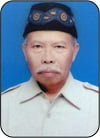A Study of Education History on Gifted Children: Research on Their Learning Achievement as They Started Their School Under Seven
Abstract
ABSTRACT: A child with a high intelligence or a talented child was deemed able to distinguish between behaviors and to have a high learning ability. In contrast, another child having a low intelligence would always fail in all areas. This conventional view believed that intelligence is an ability that can be used to solve all problems in life. Among Indonesian society, especially among those involved in the basic education, there is a questionable belief that when a young child of less than 7 years starts to enroll a primary school he/she cannot study well. Based on the theoretical frame, this research proposes a hypotheses: “A gifted child does not experience any problem of academic achievement and the disorders of mental hectic and brain fatigue when he/she starts the primary school before seven”. This is a longitudinal study using documentation and observation for the data collection. The observation carried out by following the educational experience of the subjects studied in a fairly long period of time. Three subjects were studied. All of them started their elementary education under sever years old. They joined kindergarten under 5 years, and one of them even started his experience of learning when he was still so young, 3-year-old. The method of analysis data used a qualitative descriptive. The research results prove that the hypothesis proposed is accepted or proven, meaning that gifted children starting their elementary school before seven will not have problems in the academic achievement and do not suffer the disorders of mental hectic and brain fatigue, provided they are given education appropriate to their talents.
KEY WORDS: Longitudinal study, gifted children, intelligence, elementary education under sever years, and not have problems in the academic achievement.

About the Author: Johni Dimyati is a Senior Lecturer at the Faculty of Letters UMP (Muhammadiyah University of Purwokerto), Jalan Raya Dukuhwaluh, Purwokerto City, Central Java, Indonesia. For academic purposes, the author can be contacted via mobile phone at: +6285643534732 or via e-mail at: kristian.topz@gmail.com
How to cite this article? Dimyati, Johni. (2015). “A Study of Education History on Gifted Children: Research on Their Learning Achievement as They Started Their School Under Seven” in EDUCARE: International Journal for Educational Studies, Vol.8(1) August, pp.45-54. Bandung, Indonesia: Minda Masagi Press and UMP Purwokerto, ISSN 1979-7877.
Chronicle of the article: Accepted (July 3, 2015); Revised (August 3, 2015); and Published (August 25, 2015).
Full Text:
PDFReferences
Arikunto, Suharsimi. (2006). Prosedur Penelitian: Suatu Pendekatan Praktik. Jakarta: PT Aneka Cipta.
Bronfenbrenner, U. (1979). The Ecology of Human Development. Cambridge, Mass.: Harvard University Press.
Janice, Beaty J. (2013). Observasi Perkembangan Anak Usia Dini. Jakarta: Kencana Prenada Media Group, translation.
Dimyati, Johni. (2014). Metodologi Penelitian Pendidikan & Aplikasinya pada Pendidikan Anak Usia Dini. Jakarta: Kencana Prenada Media Group.
Elqorni. (2015). “Pendidikan Berbasis Konsep Keberbakatan”. Available online also at: https://elqoni.wordpress.com/ [accessed in Purwokerto, Indonesia: January 18, 2015].
Ellah, Chalidah Siti. (2005). Terapi Permainan bagi Anak yang Memerlukan Layanan Pendidikan Khusus. Jakarta: Ditjendikti Depdiknas RI [Direktorat Jenderal Pendidikan Tinggi, Departemen Pendidikan Nasional Republik Indonesia].
Gardner, Howard. (2003). Kecerdasan Majemuk: Teori dalam Praktek. Batam: Penerbit Interaksara, translation.
Heller, K.A.H. (2004). “Identification of Gifted and Talented Students” in Psychology Science, Vol.46(3), pp.302-323.
Janice, Beaty J. (2013). Observasi Perkembangan Anak Usia Dini. Jakarta: Kencana Prenada Media Group, translation.
Levett, P.N. (1995). “Actiology of Vaginal Infections in Pregnant and Non-Pregnant Women in Barbados” in Western Indian Medical Journal, 44, pp.96-98.
Mariyana, Rita. (2005). Strategi Pengelolaan Lingkungan Belajar di Taman Kanak-kanak. Jakarta: Ditjendikti Depdiknas RI [Direktorat Jenderal Pendidikan Tinggi, Departemen Pendidikan Nasional Republik Indonesia].
Mukhtar, Latif et al. (2013). Orientasi Baru Pendidikan Anak Usia Dini. Jakarta: Kencana Prenada Media Group.
Mutiah, Diana. (2010). Psikologi Bermain Anak Usia Dini. Jakarta: Kencana Prenada Media Group.
Santrock, John W. (2007). Perkembangan Anak, Jilid 1. Jakarta: Penerbit Erlangga, translation.
Saputra, Adi. (2012). “Program Siswa Cerdas Istimewa atau Berbakat Istimewa: Akselerasi”. Available online also at: http://adisaputrabtm.blogspot.com/2012/04 [accessed in Purwokerto, Indonesia: January 18, 2015].
Schaefer, E.S. & R.Q. Bell. (1958). “Development of a Parental Attitude Research Instrument” in Child Development, 29, pp.339-361.
Sudjana, Nana. (2007). Penelitian dan Penilaian Pendidikan. Bandung: PT Sinar Baru Algensindo.
Sugiyono. (2008). Metodologi Penelitian Kualitatif, Kuantitatif & RD. Bandung: Penerbit Alfabeta.
Sukardi. (2009). Metodologi Penelitian Pendidikan. Yogyakarta: PT Bumi Aksara.
Suryabrata, Sumadi. (2013). Psikologi Pendidikan. Jakarta: PT Raja Grafindo Persada.
Suryosubroto, B. (2004). Manajemen Pendidikan di Sekolah. Jakarta: PT Rineka Cipta.
Swassing, R.H. (1985). Teaching Gifted Children and Adolescents. Columbus, OH: Merrill.
Sylvia, Rimm. (1997). Mengapa Anak Pintar Memperoleh Nilai Buruk? Jakarta: PT Gramedia, translation.
Triyono. (2005). Pintu-pintu Pendidikan Kontekstual: Anak Usia Dini. Jakarta: Ditjendikti Depdiknas RI [Direktorat Jenderal Pendidikan Tinggi, Departemen Pendidikan Nasional Republik Indonesia].
EDUCARE: International Journal for Educational Studies. Ciptaan disebarluaskan di bawah Lisensi Creative Commons Atribusi-BerbagiSerupa 4.0 Internasional
